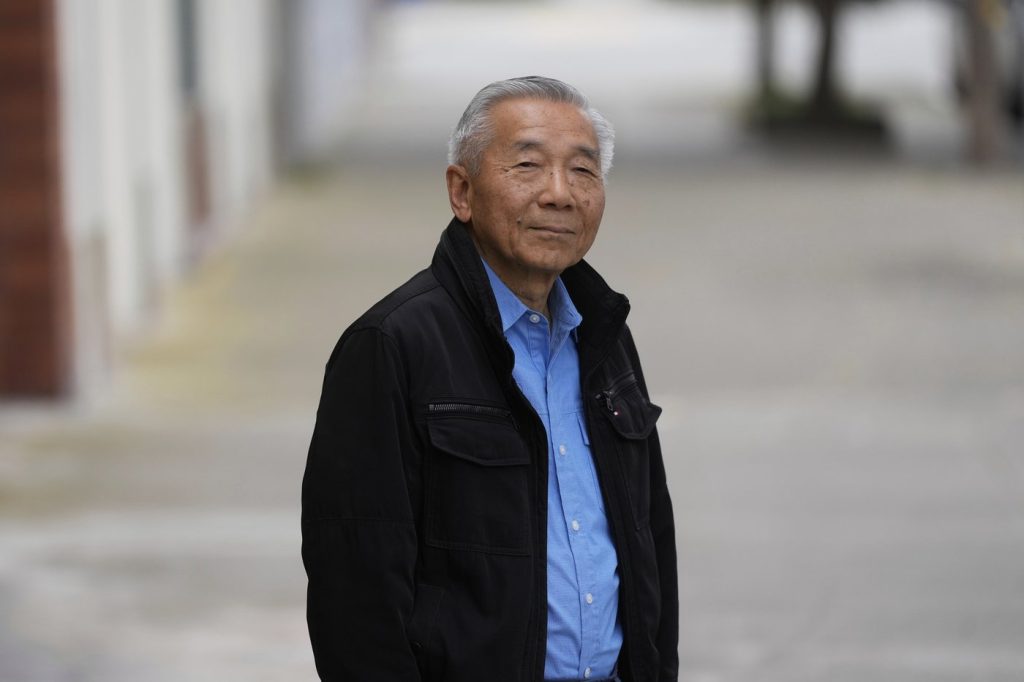During his formative years, William Fong's life revolved around the vibrant community of San Francisco's Chinatown. However, in 1967, as the Vietnam War escalated over a decade, Fong found himself drafted into military service at the age of 20. This marked his first venture outside the confines of his city, beginning with basic training and subsequently leading him to Asia.
Anticipating a predominantly white U.S. military environment, Fong grappled with anxiety about being misperceived as an enemy combatant due to his Asian heritage. This concern deepened his resolve to excel as a soldier, as he sought acceptance on his own merit rather than being defined by stereotypes. “I wanted to be accepted like anybody else... not necessarily Chinese or Asian or... from any particular part of the country, but just to be myself,” Fong expressed.
Now at 77, Fong served as an armor intelligence specialist during his year-long tour in Vietnam, during which he formed lasting friendships. Over five decades after the Vietnam War concluded, an increasing number of Asian American and Pacific Islander veterans, like Fong, are reflecting on their transformative experiences, often complicated by issues of race. From the Army to the Marine Corps, these service members are increasingly sharing accounts of the racism they encountered both in their youth and during their military service, where they were frequently reminded of their perceived resemblance to the enemy.
Despite these challenges, many veterans report finding camaraderie with their fellow soldiers and take pride in their service. Now, long after the conflict, these veterans are advocating for their stories to be heard and recognized.
The conflict, known in Vietnam as the "American War," commenced in 1955 with the rise of northern Vietnamese communist forces and concluded on April 30, 1975, when tanks from the north captured Saigon, the capital of South Vietnam, forcing American withdrawal. The war claimed around 58,000 American lives, 250,000 South Vietnamese allies, and an estimated 3 million Vietnamese combatants and civilians. Out of approximately 2.7 million Americans who served in the Vietnam War, around 35,000 identified as Asian American, according to the Library of Congress.
Since the year 2000, the Library of Congress' Veterans History Project has compiled roughly 121,000 personal accounts from veterans, with only about 700 submissions identifying as Asian American or Pacific Islander—likely an undercount, as many participants did not disclose their race. A significant contributor to this effort is the volunteer-driven Asian American Community Media Project, which has recorded over 100 testimonials in just the last two years.
This project, initiated by volunteers Don Bannai and George Wada—both Japanese American and in their 70s—focuses on preserving the voices of veterans. Despite not being veterans themselves, their passion for conveying these stories is evident. They utilized documentary filmmaking techniques learned in classes for seniors to interview and film veterans sharing their experiences.
“The hardest thing is to find people to talk to,” Bannai remarked, revealing that out of a list of 250 potential interviewees, many have declined to share their stories. This reluctance illustrates the depth of untold experiences still carried by veterans.
Bannai and Wada uncovered compelling narratives from Japanese American veterans who served in Vietnam. Some revealed their family histories involving internment during World War II, while others had relatives in the 442nd Infantry Regiment, a highly decorated unit in U.S. military history. Their stories are often laced with recollections of prejudice and misunderstanding faced due to their appearance, including instances where superiors mistakenly identified them as the enemy.
Fang Wong, another veteran, also reflects on his journey. Moving to New York City from China in 1960, Wong went through the drafting process in 1969, ultimately serving in Vietnam and developing strong connections with Chinese civilian contractors in Saigon. The shared heritage fostered friendships and allowed him to experience a taste of home while away from the U.S.
For William Fong, discussing his war experiences proves to be challenging. He witnessed traumatic events and returned to a country divided in its perception of the conflict. He remains devoted to supporting other veterans through his affiliation with the Veterans of Foreign Wars’ Chinatown Post, hoping to create a space for dialogue and understanding about their shared experiences.
Fong aspires to help other Asian Americans who have served realize they are not isolated in their struggles, promoting a narrative of inclusion and mutual support among veterans.











